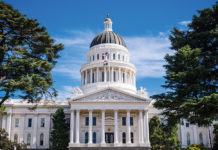On April 20, the Board of Directors of Sonoma-Marin Area Rail
Transit unanimously voted to move forward with a multi-modal
transportation future for the North Bay. Our vote to authorize the
issuance of tax-revenue bonds to pay for construction of the SMART
train and pathway project provides the means for more jobs, a
cleaner environment and an improved quality of life in our
community.
Even in the face of those undisputable benefits, however, some
would prefer that we abandon this project.
We all are disappointed that, due to reduced sales tax revenues
and increased costs, the entire 70-mile SMART rail line from
Cloverdale to Larkspur won’t be completed by 2014. But the initial
segment of the project that we will build in the next few years is
hardly “half a train.” Running 37 miles from the heart of Santa
Rosa to the heart of San Rafael, it will connect the North Bay’s
two largest cities (and every city in between) with a fast,
efficient and comfortable alternative to the maddening daily
commute on Highway 101. It also will include a bicycle-pedestrian
pathway that will provide safe and convenient transportation and
recreational options for North Bay residents and visitors.
At a cost of around $350 million, this will be the most
significant public works project ever undertaken in this region.
Based on estimates from the American Public Transit Association,
the money we spend to get SMART up and running will generate more
than 8,000 jobs. Economic leaders in the North Bay see SMART as a
key factor in attracting new employers to this region and in
retaining the ones based here now.
Some argue that because the entire SMART system can’t be built
right now, we should not build any of it. As indicated by the vote
in April, not a single member of our Board would agree. Despite the
challenges of a bad economy, this is exactly the right time to get
started with this project. The cost of bonding is at near-historic
lows, and the construction industry is hungry for work. Delaying
the start of work on SMART will only ensure that costs will
increase.
It has also been suggested that SMART’s financial plan needs
further review. Let me assure you that our financials have been
subjected to more reviews than Princess Kate’s wedding dress. In
the past six months, we have worked with the Metropolitan
Transportation Commission, the Transportation Authority of Marin,
the Sonoma County Transportation Authority and our own Citizens
Oversight Committee to make sure our cost estimates, revenue
projections, ridership model and operations and maintenance plan
are based on sound and conservative assumptions. We have held more
than a dozen public meetings where private citizens and interested
community groups have provided advice and opinions. We have met
with elected leaders and local stakeholders. We have worked closely
with the financial community to make sure that the bond market
looks favorably on our project.
I am often asked, “When will SMART come to Windsor, Healdsburg
and Cloverdale”? The simple answer is I can’t predict the exact
year right now; but we will extend the line north as soon as
additional revenues make that possible. But just because the SMART
train isn’t running all the way north in 2014 doesn’t mean that its
benefits won’t extend to our part of the county.
We are engaged in discussions right now with Golden Gate
Transit, Sonoma County Transit and other operators to make sure
that transit connections to SMART are available throughout the
entire rail corridor from the first day that trains start running.
Our vision is for you to be able to board a bus in Cloverdale and,
with quick stops in Healdsburg and Windsor, be whisked to the
northernmost SMART station in time to meet a southbound train.
This isn’t the ideal option, but it is an improvement over what
we have and an important step toward providing a range of
multi-modal transportation options. And it is temporary: The train
will be built from Cloverdale to Larkspur.
Almost 70 percent of Marin and Sonoma County voters said yes to
Measure Q in 2008, making a clear and bold statement about the kind
of transportation future we want in the North Bay. We are starting
to build that future now, because there is one fact that can’t be
disputed:
We can’t finish the SMART project if we don’t start it.
Debora Fudge is the Vice Mayor of Windsor and a SMART Board
Member.
46.5
F
Healdsburg
April 19, 2025







